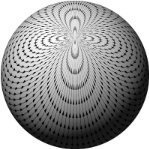-
Posts
1946 -
Joined
-
Last visited
-
Days Won
20
Eise last won the day on March 19
Eise had the most liked content!
Profile Information
-
Location
the old world
-
Favorite Area of Science
Physics, Astronomy
-
Biography
University degree philosophy, subsidary subject physics
-
Occupation
Database administrator, a bit of Linux too
Recent Profile Visitors
13506 profile views
Eise's Achievements

Primate (9/13)
642
Reputation
-
Obviously, you do not know what formal logic is. It is a mathematical description of how 'truth can be conserved', and on the other side to recognise where chains of argumentations are invalid. Proposition logic and predicate logic are just as established as 1 + 1 = 2. But when you start with propositions of which the truth is debatable, which is more often than not (as in science, philosophy and daily life as examples), the usefulness of formal logic is (very) limited. Everybody with at least a modicum of knowledge of what logic is, would immediately agree. The point is that many crackpots call 'logic', is in fact nothing more than intuitions put in words. Without any knowledge about (established) science (and logic), their minds are free to create ideas out of thin air, and think they have some revolutionary and correct ideas.
-
Full ack (of course). Some kinds of philosophers, e.g. some outgrows of post-modernism, have still not understood that. For them everything is a a 'narrative'. Another kind is self-proclaimed philosophers who think that philosophy is another way to the same 'truths' that science is investigating. By 'pure logic' they think to be able to refute even established science (like GR). Nearly always this 'logic' is both based on false assumptions and confused 'logic'. I like Swansont's comparison with Zeno's paradoxes.
-

Scalar and Takyonic force fields agains electronic mind control
Eise replied to Mahapo's topic in Speculations
-

The spacetime interval versus a chain of causative events
Eise replied to geordief's topic in Relativity
I think there are many ways to see c (do not pronounce that sentence). Just to mention a few: speed of light in vacuum speed of gravitation the speed limit of every object with mass the only speed massless particles can have maximum speed of causality the conversion factor between time and space, so that they can be used on equal footing Surely you could draw a spacetime diagram with another speed as conversion factor (you need it to get a distance, as you can only 'make distances' on paper). However for calculations you would still need c, and if you would like to derive formulas from the diagram, they would be awfully complicated. The Minkowski diagram, with c as conversion factor show everything much more directly. This might be a bit over-precise, but I would have written something like 'was historically (or originally) derived'. Logically seen, the values of e0 and µ0 'must adapt' to 'the only speed massless particles can have', not the other way round. Maxwell took 'the empirical way' based on Faraday's results, and so was the first to derive c, however without knowing how fundamental c is for the structure of spacetime. And that is why I like the last description of c best. -
Eh? I thought QED describes perfectly how bosons and fermions interact? And there is no empirical evidence that the brains 'special capacities', namely to create a mind, are mandated by quantum processes. That is not Occam's razor. Occam's razor is about explanations, not about nature. 'Explanations' are the ways humans understand nature. It is a heuristic principle for choosing possibly best theories: if you have several theories that explain the same phenomenon, then the theory that presupposes the least of number of ontological entities is probably the correct one. Do not forget this 'probable': Occam's razor is far away from 'dictating' anything, not even a rigid principle for choosing 'the correct theory'. Nice, but it does not mean that sciences are therefore wrong. It only means what it says: that many scientists are not aware of the philosophical presuppositions of their science. I cite it, because of the disdain many scientists have for philosophy: it is not meant as an invitation to propose new, wild, freewheeling, metaphysical speculations.
-
So what is the relation between a neural firing rate somewhere between 1 - 200 firings per second (how many depends among others on what the part of the brain where the neurons are localised are active), and the translational speed of light? 300,000 km/s? Or should I express it as 300,000,000 m/s? Or 300 Mm/s? What has a clock frequency to do with a speed?
-
Interesting, I've never heard of Yeshu but you would need to start another thread to explain it to me. Not needed: 'Yeshu' is just the (possibly) original name of Jesus in Arameic. Yes. In those days astronomers did not even know that other galaxies existed. They assumed that the universe on grand scales did not really change, and therefore had no beginning. When Einstein discovered, when applying his general theory of relativity to the cosmos as a whole, that the universe could not be stable, but had to expand or shrink, he introduced his 'cosmological constant'. Later Edwin Hubble discovered first that the spirally 'nebulae' were other galaxies on their own, and later that galaxies were receding from ours, the farther ones receding the fastest. Lemaitre was the first to propose, based on Einstein's general theory of relativity, that all the mass and energy of the universe once was concentrated in a 'cosmic egg'. This was not generally believed, and e.g. Fred Hoyle proposed the 'steady state theory', in which the universe is expanding, but that constantly new matter and energy is created, so that the universe does not really change on the grand scale. He coined the term 'Big Bang' to ridicule the idea that the universe started in a highly concentrated state.
-
At least for Pakistan I know the answer. Abdul Khan was a Pakistani who worked at Urenco in the Netherlands in the 70's. This company built ultracentrifuges to enrich uranium. Back in Pakistan, they were able to build them themselves. The greatest technical obstacle for building a bomb is not to construct a bomb, but the capacity to enrich uranium enough for the bomb. Really? So poor that they always already had to import their food? Don't do so ridiculous. @zapatos is perfectly right in his reaction. For modern technologies you might be right, but not for producing their own food. I would suggest, instead of just venting some opinions based on a few (alternative...) facts, read some books about the history of WW-II and about the development of the atomic bomb. Your posts show a gigantic lack of knowledge about, and understanding of history.
-

nonstop barrage of full page ad walls
Eise replied to TheVat's topic in Suggestions, Comments and Support
I use the browser 'brave', when on Windows. I see no advertisements at all. 'brave' is a fork from Chrome, but specially written to block as much advertisements and pop-ups as possible. Pity enough this browser does not exist for Linux. With Chrome on Linux I see an awful lot of advertisement. -
Leibniz. See Leibniz–Newton calculus controversy.
-
Well, it is a replica. You wouldn't like to visit in a cellar with a lot of radioactive material literally hanging around. AFAIK the Americans dismantled the experimental reactor, and took it to the US. The idea of the reactor was of course to lower the 'fission cubes' into the heavy water in the tank below it. If it really worked I do not even know. There are several not so nice stories about the heavy water. It came from a factory in Sweden. One time the English sent a commando in order to sabotage the plant. They succeeded, but damage was repaired in due time. And then there is the sinking of a ship to transport the heavy water from the plant. It was a sabotage act by the Swedish resistance. Innocent civilians were also on board, and drowned.
-
Wow, so much to unravel here. Yes. The scientific background was in the open. So it would be just a matter of time. And then the point Swansont mentioned: That is true, more or less. But Japan simply did not capitulate. So the war could have taken much longer, taking many lives of American soldiers. Yes, but only after Germany was defeated. Heisenberg was in charge. The infamous meeting between Heisenberg and Bohr in 1941, gave the latter the impression that the Nazis were making serious work of the atomic bomb, and brought this impression to the US. Yep. I have seen the 'atom cellar' in Haigerloch: Does not quite compare to Los Alamos, is it? I would not put my hand in the fire for this, but it surely was a reason: Truman said something like this about the Soviets and the atomic bomb: "Now we have a real hammer on those boys". Another reason might have been to have a 'real live test'. A hint for this is the second bomb. One of the A-bombs was a U-235, the other a plutonium bomb. Wouldn't it be interesting to compare their effects 'in the field'? About the capitulation of Japan: there was a struggle between the civilian government and the military. The government wanted to give up, the military wanted to fight until the bitter end. One of the struggling points was the position of the emperor. The US wanted an unconditional capitulation, the Japanese government found that the position of the emperor could not be discussed. In the end the Japanese government made a very unusual proposal: let the emperor decide. In the meantime the first atomic bomb was dropped. If this fact had an influence on the decision of Hirohito is not known, fact is that he chose to capitulate. His speech in which he called for the capitulation was recorded, to be brought to the Japanese radio studios. Radical militaries tried to steal the recording on its way to the radio station, but they did not succeed. Hirohito's speech was broadcasted, and Japan capitulated. And the US more or less let the emperor untouched. Had the US made it known that the emperor could stay earlier, Japan might also have capitulated earlier. Maybe the A-bombs would not have been necessary. Main source: Bert Röling, who was a.o. member of the International Military Tribunal for the Far East (also called the Tokyo Tribunal, similar to the Nürnberg Tribunal in Germany). Hmmm. Lise Meitner and Otto Frisch were hardly Nazis, they were Jewish and fled Germany in 1938. Otto Hahn: Fritz Strassmann: So four of the 'main characters' were definitely not Nazis. Equating 'German' and 'Nazi' is simply wrong, also during WWII.
-
Nicely put. I also do not know of masses that do not have a gravitational field, resp without 'curving' spacetime. And that is an important reason for me not to see a causal relationship between mass and curved spacetime.
-

Second time I'm unable to contribute.
Eise replied to naitche's topic in Suggestions, Comments and Support
Hi Naitche, I sometimes have such kind of problems too. For me a reload of the web page helps. Maybe you too? Cheers, Eise











